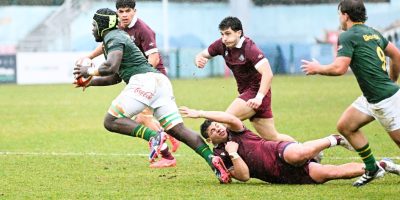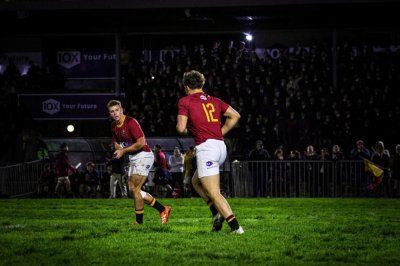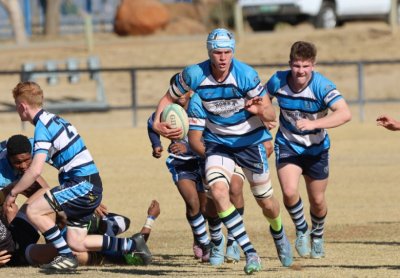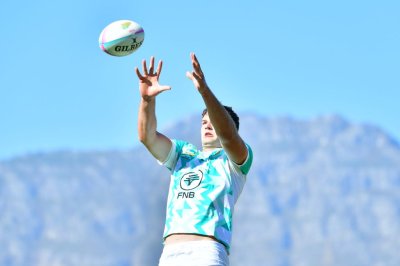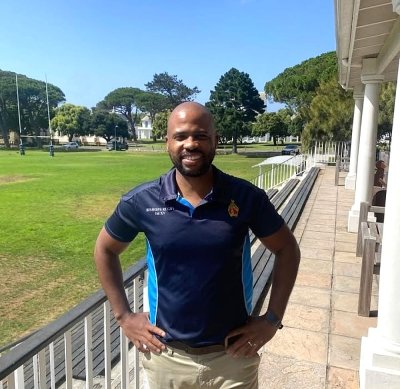“The facts don’t count” for Tygerberg’s Springbok duo
 The Springbok squad defending the nation’s pride and the title of world champions in France is made up of a diverse group of players hailing from different backgrounds and upbringings.
The Springbok squad defending the nation’s pride and the title of world champions in France is made up of a diverse group of players hailing from different backgrounds and upbringings.
A list of the schools they attended reveals just three that have produced more than one current Springbok player.
The trio of Damian Willemse, Willie le Roux and Steven Kitshoff are products of Paul Roos Gimnasium in Stellenbosch, while the late inclusion of Handré Pollard saw Paarl Gimnasium join the elite club, with Grant Williams having cracked the selection nod earlier.
The two aforementioned schools are recognised as being among the finest rugby-playing institutions in South Africa, reputations they have deservedly earned over a long period of time.
The third school with two Springboks at the 2023 Rugby World Cup is, however, seldom mentioned among South Africa’s elite rugby schools. Yet, Tygerberg High School in Parow was home to the lock duo of Eben Etzebeth and Marvin Orie.
Etzebeth, only the seventh Springbok to play in 100 Tests – after Percy Montgomery, Jean de Villiers, John Smit, Tendai Mtawarira, Bryan Habana and Victor Matfield – is a well-established figure in the Springbok pack, while Orie is making his first appearance at a World Cup, having earned his place alongside his former school-mate in one of the most respected and feared packs in the game.
The duo have grown into a formidable partnership on the international stage since their time at Tygerberg.
Speaking to SuperSport earlier this year in preparation for the World Cup, Etzebeth and Orie recalled their time at the school in the northern suburbs of Cape Town and credited their first team coach, Gavin Beresford, for his huge influence on them. Both fondly recalled the maxim he would drill into them at training, “If the dream is big enough, the facts don’t count.”
Conversations with a Springbok | Eben Etzebeth & Marvin Orie
“When those two ran out on the field against Tonga, I can tell you, I was an extremely proud man”, Beresford said, when we spoke to him after the duo both started in South Africa’s 49-18 victory over Tonga in the group stages.
“I know where these boys come from. I know the truth. No one gave them a chance, no one, and that does not matter.
“Who cares what other people think? If the dream is big enough, it doesn’t matter who you are, where you’re from, or what others’ opinions about you might be. It makes no difference.
“The only thing that matters is your belief and how hard you are working towards your goal. The rest is nothing but noise. It’s about you and your effort. That’s the beginning and the end of it all” he said, expounding upon his mantra that the behemoth lock duo shared.
“In my mind, there’s no doubt that Eben is the best number four lock in the world at the moment. Perhaps I am a little bit biased, but what’s truly impressive for me is the fact that he is a better human being than he is a rugby player, which says a lot, because he’s an exceptional player”, Beresford said.
He also spoke with admiration about Etzebeth’s drive. The 2009 matriculant had only moderate success on the rugby field before finding his feet at lock towards the end of his school days.
“I’ve mentioned this in previous interviews, but I want the world to know this: Eben never played in the A-team at any age grade. We had no other option than playing him at lock in grade 11 because we had no one else. He just never quite cut it anywhere, but he is an absolute example of how sports should be played.
“It simply doesn’t matter if you play A-team or not at school level. It doesn’t prove anything. He never played A-team, but he never quit. He never gave up, and that’s exactly what I mean when I say the facts don’t matter,” Beresford explained.
After Eben’s growth spurt in grade 11, he was moved out of the backline to lock and into the first team, but he wasn’t contributing to the lineouts much yet. “At more than 120kg in matric, we didn’t have anyone who could lift him in the lineouts. It was only at the Craven Week when he played with the likes of Steven Kitshoff and Frans Malherbe that he became a viable option in the lineout,” laughed Beresford.
“He was always a good athlete, though, excelling in sprinting and the high jump, so he was always athletic. I’d love to see him get the ball in space on the wing sometime. He’d be difficult to catch.”
The same is true of Marvin Orie, who matriculated a year after Etzebeth.
“Marvin was also an excellent sportsman all around. He was great at the lineouts and an equally talented all-rounder on the cricket pitch.
“He brings a different element to the game than Eben, because they have different jobs on the field. As the five lock, I think he has a big part to play in the lineouts and he fulfils that role excellently.”
Orie joined his sister at Tygerberg in grade 10 when his previous school cancelled their rugby programme, and he grew to be a skilled and hardworking lineout technician in the two years he played for their first team.
“They are both genuinely very accessible. I recently attended Eben’s wedding, and he still visits the school whenever it is possible. It’s a bit easier for Marvin, playing at the Stormers. He still often comes to visit and helps with the lineouts and set pieces.”
Beresford, reflecting on the players that have passed through Tygerberg, revealed that it has been far from a two-man show: “We’ve been fortunate to be able to produce a number of talented sportsmen throughout the years, with Marvin and Eben joining the likes of Justin Geduld, Travis Ismael, Andre Warner and Juarno Augustus, who all came through the system at Tygerberg and went on to excel in their professional careers. But the fact that they all turned into respectable young men is what is most important to me.”
Orie did not make the Craven Week squad at school, but he persevered and was selected as part of the SA u20 team the following year, 2012, when the Baby Boks won the u20 World Cup for the only time thus far, beating New Zealand in a thrilling final after losing to Ireland in the group stages.
Orie’s flyhalf in the SA u20 team was a young Handré Pollard. Despite being in matric, he was called up to replace the injured Johan Goosen and scored 14 points in their 22-16 triumph over the Baby Blacks in the final at Newlands in front of 33 000 spectators.
“Grant Williams is another good example I like to use, because I know him from when I coached him at the Craven Week Sevens,” Beresford said. “In grade 11, he was still playing for the D or C team at Paarl Gim. Then he made the decision to pursue his dreams no matter what.
“He started at the Sevens but didn’t quite make the transition into the senior team, but he kept pushing. He went to the Sharks to play club rugby, and just look at him now! As long as you never give up, the facts don’t matter.”


